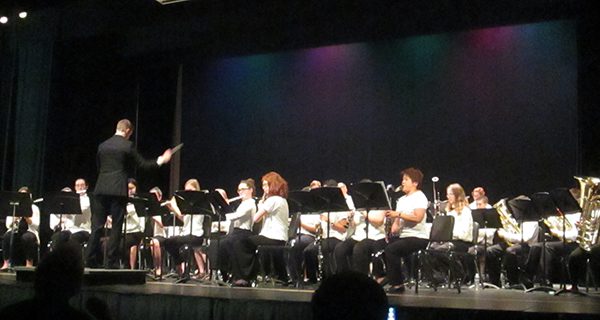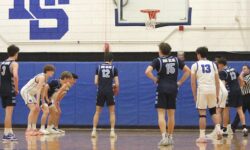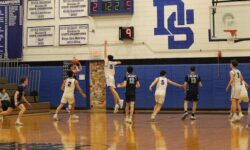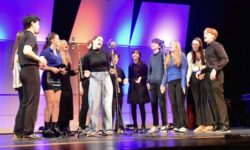[ccfic caption-text format="plaintext"]
By Cameron Small
Hometown Weekly Intern
Forty-seven students. Fifteen schools. Eight pieces. Five states. Three grades. Two and a half days. One concert.
This isn’t some advertisement for a graduate school program or something like that. They’re the basic facts of the John Philip Sousa Lowell Mason Heritage Youth Band Concert that took place at the Lowell Mason Auditorium at Medfield High School on June 29.
Forming the Sousa Mason Heritage Youth Band, students from Arkansas, Connecticut, Maine, Massachusetts, and New York met to rehearse in a jam-packed two and a half days in Harvard. For the music selected, it is hard enough to play when you rehearse every day with your band-mates for months—as a school band would do—but to condense months of rehearsal into two days seems a dauntingly impossible task.
The effort put in by the students seemed under-appreciated as counted by the sparse audience of about fifty or sixty people, comprised predominantly by family members of the students. The small audience couldn’t have been louder or more supportive at the end of the final piece, the “Stars and Stripes Forever” when a hundred or so feet gave a standing ovation.
The band played eight pieces: Francis Scott Key’s “The Star-Spangled Banner,” Charles Carter’s “Overture for Winds,” David Holsinger’s adaptation of a Lowell Mason hymn entitled “On a Hymnsong of Lowell Mason,” John Williams’ “Midway March,” Malcolm Arnold’s “Prelude, Sicilliano, and Rondo,” Morten Lauridsen’s “O Magnum Mysterium,” Alfred Reed’s “The Hounds of Spring,” and John Philip Sousa’s iconic march, “Stars and Stripes Forever.”
For those who don’t know, Lowell Mason (1792-1872) was a composer who was born in Medfield. In addition to writing over 1,600 hymns, Mason is known as the father of music education in American public schools. With the Medfield music program being as highly regarded as it is, it stands to reason that the Lowell Mason House Music Center would work to preserve the birthplace of someone with such significance to Medfield’s history.
John Philip Sousa (1854-1932) was a composer and bandleader who traveled around the world with his highly esteemed band. Sousa, like Mason, also advocated for school band music. To this day, Sousa’s music is regarded worldwide as an emblem of American music. His most prolific march, the “Stars and Stripes Forever,” is classified as the official march for the United States.
To honor and remember Sousa, the John Philip Sousa Foundation biennially forms the John Philip Sousa National Honors Band. The band combines the top high school aged musicians from around the country, selected by application. Due to its popularity, the Foundation started a junior high level for younger students.
The concert on June 29 to honor Sousa and Mason was held to raise awareness and money so that the Lowell Mason House Music Center could finish the planned renovations to the house.










